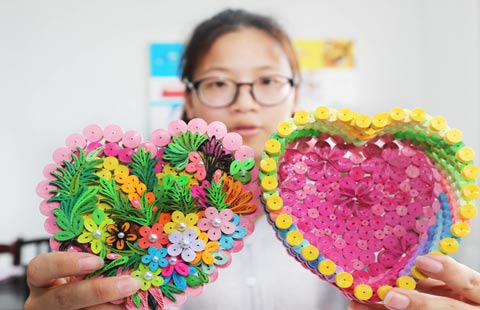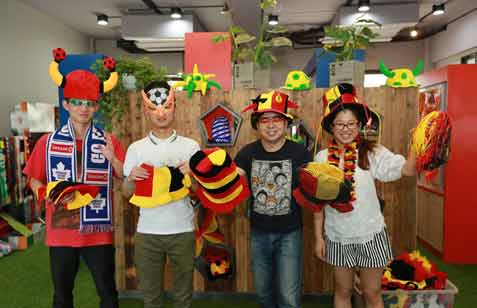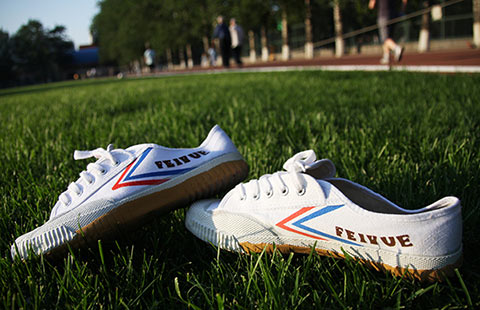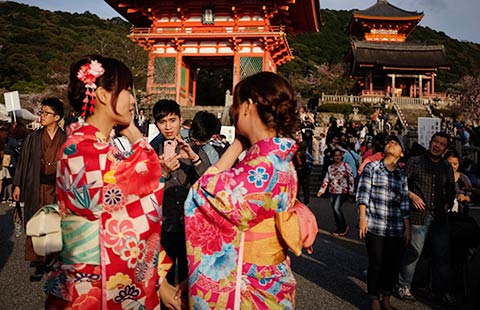The man who has a nose for liquor
By Qiu Bo (China Daily) Updated: 2012-02-04 09:56MAOTAI, Guizhou - Fu Yao's office is like few others. Where you might normally find in-trays, out-trays or stacks of files, dozens of open jars rule the roost, and in his daily work Yao is more likely to brandish liquid-filled test tubes than ink-filled pens.
Fu is a spirit master, the spirits in question being of the drinkable, rather than the ghostly, variety.
"My job is tasting and blending baijiu (white spirit) for clients," said Fu, the youngest spirit master in Maotai town in Renhuai in Southwest China's Guizhou province. It is here that the best-known Chinese baijiu, Moutai, is produced, making the town, in a very literal sense, the spiritual home of the liquor.
The town is renowned for 'sauce-fragrance spirit", a particular type of baijiu that is Moutai's hallmark.
Fu's profession seems like a well kept secret, but in Maotai town, tasters and blenders are a dime a dozen.
"A baijiu judge is just like a bartender, so there is nothing mysterious about it," Fu said. "It does take practice, and you need a lot of patience and certain talents."
An acute sense of smell is one of the most important of those, Fu said. But how sharp does one's nose need to be to take a place with the judges of the baijiu bench?
"For instance, once I was walking along the road and happened to smell a lemonade-like fragrance. Later I found out it was some dry orange rind ditched in the bush giving off the smell." The average nose would not pick that up, he said.
In fact Fu was once in line to be named as one of China's youngest top spirit judges. In 2003, when he was 18, he sat a professional-level test at the China National Food Industry Association. In the examination, which has extremely rigid rules, Fu passed both the written and practical tests.
He then set his mind on winning the title "Blender of the Nation", one of the industry's highest accolades. But he fell at the last hurdle, an interview. "When I walked into the room the interviewers were stunned. They never expected a kid like me."
Winning the title requires at least 13 years' experience whereas Fu had only one. He was awarded a special certificate encouraging him to remain faithful to his calling. "I was told to come back in 12 years, and now I have four left."
After his setback, Fu became famous in his town, thanks to guidance from his grandfather Xie Zhengqing. Xie set up a baijiu business in the 1970s and became well known. He was once a trainee at Kweichow Moutai Distillery Co, the parent of one of the world's largest listed distillers by market capitalization.
Xie's first plant was next to Moutai's manufacturing plant.
"My grandfather was a master in baijiu tasting and blending, but in those days they didn't have any equipment or computers," Fu says. "Blending was done entirely by feel. When I was young, I was encouraged to drink a bit of baijiu."
The old man later realized that Fu had a keen sense of taste and decided to foster his awareness of baijiu. "Memorizing the fragrance and taste of each type of baijiu, even different kinds of sauce fragrance, is another significant skill," Fu said.
Fu started to learn tasting and blending when he was 16 and still in high school, and his career began in his uncle's plant a year later, after he graduated. He would later become the factory's chief baijiu judge.
"Working overtime is routine because you need to guarantee the quality and taste of tons in a short time."
Fu independently produces samples according to customers' wishes. The factory then produces in bulk, based on his sample.
"I once failed dozens of times in an experiment to finish some blending work in a day. It's rare but I was trying to meet a customer request."
He begins work early in the day, he said, "because it is the optimal time for the human sense of smell". He has to drink plenty of baijiu to obtain an optimum blend. "I would definitely fail a drink-driving test on work days."
The amount he drinks has often made him ill, he said. "I know it is bad for health. I tell my friends not to drink too much."
Liu Dahua, 48, a baijiu judge who said he earns more than 300,000 yuan ($47,500) a year, said: "Good judges don't eat heavy-tasting food such as chilli or garlic. They cannot smoke or even drink tea."
Ni Kelong, a government press official in the town, said a judge usually tastes baijiu on the tip of the tongue, "but Fu is a special. He needs to drink it to get the aftertaste. When he was 20 he looked 30."
But Fu said he is still young and has a lot to learn. "I have six workmates but I don't want to be anyone's master."
Fu's grandfather died in 2004 and left his recipes to his uncle, Xie Yongxue. The uncle passed on his experience to Fu, in preference to his own son.
- Central bank mulls CDRs for Chinese investors
- China opens first renminbi clearing bank in South America
- China's dairy producers still need to regain public trust
- Poland to issue $455m panda bonds in China
- Vanke's move to buy Shenzhen Metro's assets positive for developer: Moody's
- Labor of love: Graduate creates exquisite artwork with paper-rolling
- Hefei to unveil new policies to rein in property market
- China's 4G users total 530 million


















